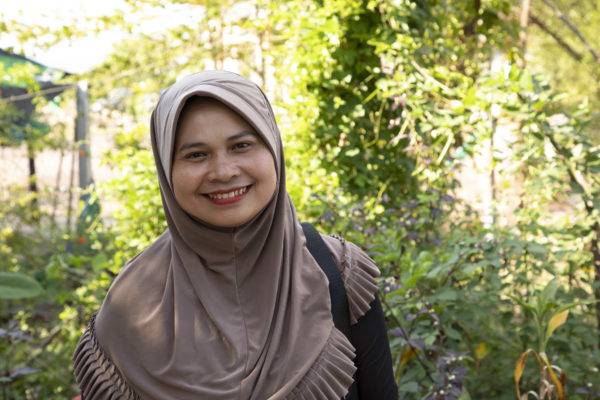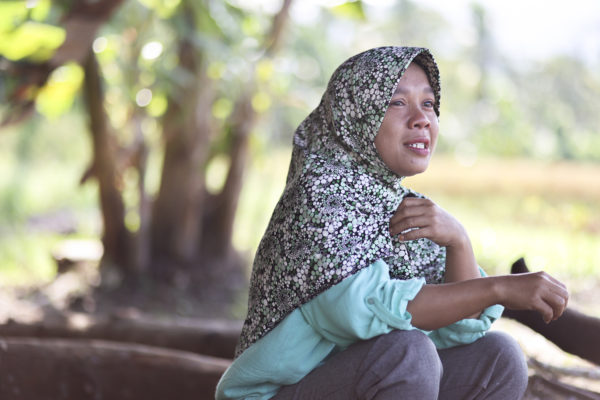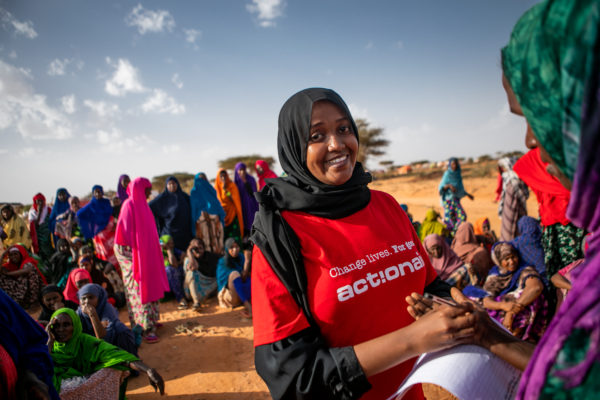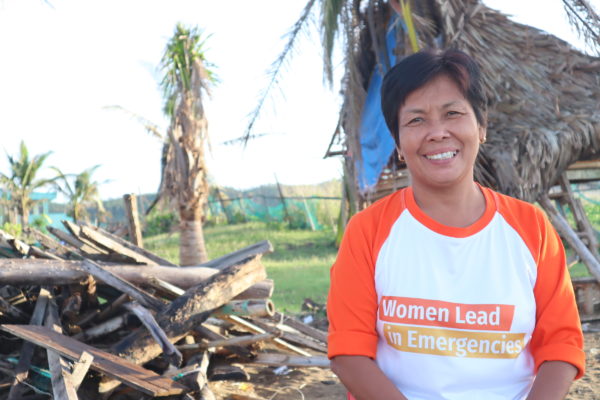We are celebrating women for the fearless changemakers and leaders that they are. Read on to learn about four women who are superstar humanitarians.
Mat Varou, Cambodia
 Mat Varou is a women champion for her community in Kampot province, Cambodia. She is also a kindergarten teacher and a mother to three children. Varou has experienced firsthand how climate change is impacting her community, as severe weather events are frequently affecting the local fishing industry and her community’s livelihood.
Mat Varou is a women champion for her community in Kampot province, Cambodia. She is also a kindergarten teacher and a mother to three children. Varou has experienced firsthand how climate change is impacting her community, as severe weather events are frequently affecting the local fishing industry and her community’s livelihood.
“It has been challenging for our fishermen; sometimes they run out of food.”
As weather events worsen and become more frequent due to climate change, Varou has worked with commune councils to spread disaster management awareness within her community. “We reach the community to share about the 1294 system, to know in advance of disasters. Moreover, we also urge people to follow the weather forecast… because we know we cannot prevent it, but we can reduce the serious harm.”
Varou also mentions that women in her village are now more confident and are raising their concerns with her.
“The women, they are braver than before; they express and raise their concerns. In the old days, even when I asked, they did not answer. They were afraid to speak up.”
Ade Herlina, Indonesia
Ade is a farmer and mother from Tamanjaya village, Indonesia. Her village is in a tsunami disaster red zone, and after narrowly surviving a tsunami in 2018, Ade has worked with local leaders to improve community resilience and tsunami preparedness. 
Together with women who are members of the Paniis Sub Village Women’s Forum, Ade proposed an evacuation route to the village government through the Musrembang (Village Planning Consultation Forum). The proposal was accepted, and Ade has worked with the village government to establish disaster evacuation routes.
“This evacuation route is used as a rescue measure against disasters, especially in our area which lies in the red zone. The faster the evacuation time that can be carried out, the greater the number of people who can survive.”
Because of Ade’s advocacy, everyone in Tamanjaya village understands the evacuation procedure and what needs to be prepared in every house before a disaster strikes, such as emergency supplies.
Hibo Aden, Somaliland
Somaliland is experiencing the worst drought in generations, which is causing disastrous impacts on vulnerable communities. Malnourishment is on the rise and livestock are dying in big numbers, and eastern regions of Somaliland such as Sool and Sanaag are already on the brink of famine.

Hibo, women’s rights officer and protection specialist at ActionAid Somaliland, is leading ActionAid’s women-led emergency response to the current drought and food crisis. A network of 85 women’s coalitions, 25 safe spaces and 30 self-help groups are helping women to develop the skills to lead their community and protect other women against rising rights violations.
She has witnessed firsthand how women and girls are enduring the worst of this crisis, as sexual and gender-based violence, child marriage, FGM and school dropouts increase.
“The number one thing that motivates me to work [with] ActionAid is that, in Somaliland, we have a [high rate] of violence against women and children, especially [against] girls. I want to stand [against this] and [take] part [in] the effort to eliminate all violations against women and girls. And I also want to create an environment where [everybody] enjoys [their] rights and dignity.”
Marilou Rafa, The Philippines
After consecutive typhoons swept through the Camarines Sur region of The Philippines, destroying homes and livelihoods, Marilou and a group of local women took charge of the emergency response.
 Marilou leads SABALO, a local organisation of fishers, farmers, women and youth, and has spent the last few years working closely with local women’s organisations taking action to respond to the increasing number of extreme weather events and disasters.
Marilou leads SABALO, a local organisation of fishers, farmers, women and youth, and has spent the last few years working closely with local women’s organisations taking action to respond to the increasing number of extreme weather events and disasters.
“I think this is happening because of climate change or global warming. It’s too bad that we are the most affected.”
After Typhoon Rolly hit in October 2020, Marilou led a rapid needs assessment to understand the challenges her community was facing. When Typhoon Ulysses hit in November, Marilou worked with local partner, PKKK (National Rural Women’s Coalition), to support women with the clean up so they can get back to their livelihoods and day to day life.
“For the community, I wish them to become stronger [to face adversities]. We help one another to rise. We have this mantra: ‘all for one, and one for all’. That’s our motto in our community.”
Women are leaders. They support everyone in their community to prepare, respond and recover from disasters. We must invest in empowering women to led humanitarian work and provide them with the resources they need to rebuild their communities.